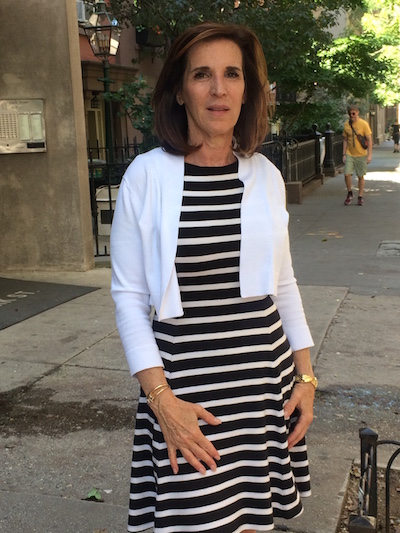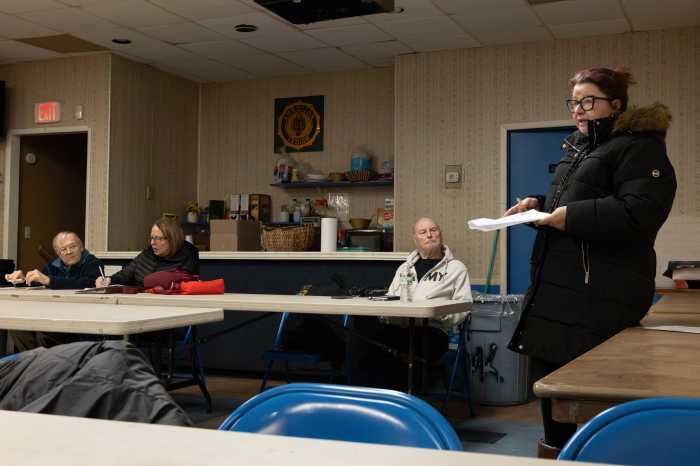On a day where the air was warm and the sun was shining bright, I met Brooklyn District Attorney candidate Anne Swern. We met in a small cafe off Varick Street in Downtown Brooklyn near the train station, an accommodation Swern made for me as an Metropolitan Transportation Authority (MTA) rider, and a sign of the compassion Swern has for others.
The cafe was between it’s breakfast rush and lunch hour, having only a few patrons in the entire dining room, but that was no match for the impassioned and emboldened Swern who seemed perfectly poised to bring some energy back to the lull of the cafe as she presented her vision for becoming the next DA.
“I wanted to make change happen. I am a very energetic person. I don’t only come up with ideas but I can actually implement them. And that has been my history throughout my life and certainly throughout my history as an Assistant District Attorney,” said Swern.

Originally born in Flatbush, but raised in Long Island, the seasoned law professor has always had an eye for change. As an adjunct professor of law at Brooklyn Law School, she is always pushing for increased reform in the criminal justice system.
“Everybody is talking about change, but it’s very important in Brooklyn but also that [reform] happens in other places as well. That’s the beauty of being the Brooklyn DA and having the bully pulpit. Not only can we do those things for Brooklynites but we can do them for the nation,” said Swern.
Swern also touts her previous work under four former district attorney’s as a catalyst for her commitment to equal justice for the residents of Brooklyn. She previously worked as Assistant District Attorney (ADA) in sex crimes cases and violent and predatory offender cases, as well as managing the Intake and Criminal Court Bureaus before going on to become First Assistant DA which made her executive-in-charge of the Drug Treatment Alternative-To-Prison (DTAP) Program.
The nationally recognized program, is the first prosecution-created program dedicated to diverting drug-addicted, prison-bound, non-violent repeat offenders into residential substance abuse treatment.
“The district attorney has the most power and most discretion in the criminal justice system. So learning how that power is exercised and then being able to be the person that exercises that power is the most important thing. I want the buck to stop with me. I want to be the one that ultimately makes the decision for what’s best for the people in Brooklyn,” said Swern.
For the almost 40-year prosecutor veteran, her first round of business will be addressing the issue of mass incarceration.
“Getting it right the first time in conjunction with the robust Conviction Review Unit is the most important thing we can do right now. I would have an ombudsman that would be an integrity review officer in the DA’s office. That person would report directly to me,” said Swern.
“That person would have the authority to work at a high level with the police department and with me in order to make two decisions: first, do we have enough right now to release an individual from Riker’s Island pending a longer investigation and second, is there is a systemic problem with the criminal justice system that is causing delays in justice, the ombudsman would fix this problem for the DA’s office and across all five boroughs. This is a really important job, knowing that you have a person in the Brooklyn DA’s office that’s very high up that you can speak to that will take seriously, these kinds of issues, is critical to running the DA’s office,” she added.
In addition, Swern plans on tackling bail, immigration and discovery reform, as well as the issues surrounding over-charging. The Brooklyn resident wants to bring back “truth in charging,” a problem she believes leads to the systemic failures already plaguing the Brooklyn DA’s office.
Swern also believes that a key to reducing the prison population in Riker’s Island in preparation for its proposed closure, is giving individuals alternatives to criminal prosecution. In her prior role as executive-in charge of the DTAP program, Swern championed the programs lasting community impact as author of its annual report. This would later serve as the model for Brooklyn’s problem-solving and therapeutic treatment courts, including the Red Hook Community Justice Center, Mental Health Court and Brooklyn Treatment Court.
“Deflecting people from the criminal justice system in the first instance, ensuring they never cross the threshold of the courthouse, all the way through with alternatives to traditional prosecution, like drug treatment, mental health treatment, community justice, veterans court, and other programs like that [is crucial]. These programs keep people out of jail and prison and give them the tools so that they don’t enter the criminal justice system again,” said Swern.
Swern went on to tout the positive impact of the DTAP program across the borough, “It reduces crime, it reduces reliance on incarceration, it reduces the disproportionate contact of minorities in the criminal justice system, it has a positive impact on veterans and immigrants who are here and it is very important in a post-presidential world. We are all very fearful of federal funds drying up in areas the federal government does not now consider a priority including criminal justice programming.”
Swern also says that the role of the DA boils down to the level of safety and justice being given to Brooklynites.
“I always go toward the things that make sure we’re safe and that were just, and those things are intimately interwoven. They are not distinct from each other. Are we safe and are we doing justice? Every decision I make, I look at those two things and makes sure that they are given the highest priority,” said Swern.










